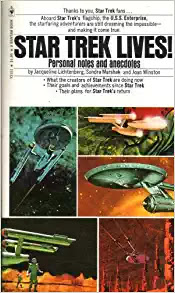There was once a man who bought an original sketch in an inventory-draw-down sale. The sketch was done during the course of employment by a moderately well known designer. So far, so good. The buyer was an EBay seller, and he created dozens of prints of the original sketch, which he auctioned on EBay week after week for years. That was questionable.
Lawfully, one cannot purchase a drawing, painting, photograph, cartoon, musical record, novella or novel (even in e-book form) and proceed to create copies and sell them. Not unless the original creator formally assigned the copyright.
Now, there is Blockchain, and Non-Fungible Tokens, or NFTs. It seems that a single work of art that is sold as a NFT can be sold on, but not duplicated, and a modest royalty can be paid to the original creator with every down-market sale and resale.
They go on to explain:
"An NFT is a digital version of a certificate of authenticity (a token), secured and embedded in a blockchain. When an NFT is created, digital information including the creator’s name and other programmatic details such as the creator’s blockchain wallet address are linked to an underlying asset and stored in a blockchain (while the underlying asset might not be stored in the blockchain). Because NFTs are secured by a blockchain, no one can modify the record of ownership or copy/paste a new NFT into existence."
For authors in particular, author Maggie Lynch has put up a comprehensive blog post on the topic, in which she lays out the pros and cons for adopting the technology.
https://povauthorservices.com/the-blockchain-nfts-cryptocurrency-and-author-opportunities/
Herewith, a quote of a small portion, with permission and attribution to Maggie Lynch and her blog.
"Here are some ideas of how an average author might consider creating NFTs. I’m sure there are many more I haven’t even considered yet.
- Digital 1st edition released in limited numbers prior to a book being released en masse to retailers
- A collectible version of a backlist book or a recent release that has different art or added art pertaining to the story
- A special edition boxset that is not offered in retail markets and won’t be offered in retail markets
- A bundled special edition that includes ebook, audiobook, and a shipped hardback book as a package
- A 1st edition Live Reading before the book is released widely, whether narrated by the author or a paid narrator
- Additional works of art based on your characters that are sold as separate digital art, playing cards, and/or provides information not in the books but germane to the story
- Tiers of special editions – Platinum tier: Only 25 copies are made of original offering which includes additional art, audiobook, and a special edition hardback delivered signed and numbered. Gold tier: 500 copies of special edition which includes everything but hardback. Silver tier: 1,000 copies of digital special edition which includes additional art. After this, the book is released as a regular ebook, print, audio all separate without any special edition things to the wider marketplace.
- A digital object that helps your reader solve a puzzle inside the book.
- A digital object that allows your reader to select two or more alternative endings
- A way for the buyer to have a video call with you for a specified period of time or to book you for a limited part of friends (book group, family, etc.)
- You could use one or more of your NFTs as part of a contest or giveaway to create buzz and get people interested in the platform
All of these are additional opportunities for PR, promo, buzz, and have the potential to also influence regular retail sales of your book products. Doing NFTs is one more market for you. I would not leave the usual mass markets just to do NFTs. Instead I would add NFTs as another way to gain income, at least until it proves it is the only way that makes sense for you to market your books."
Legal blogger Sophie Goossens, representing Reed Smith LLP, (a British law blog) takes a dimmer view of NFTs when it comes to ownership of works of art in a blog titled "You Think You Own An NFT? Think Again." She is, of course, speaking to art connoisseurs.
"Can one own a physical a piece of art? Yes. What do you own: the 'tangible property' i.e. the canvas, the statue, the physical sheet of paper embodying the work. Do you own the intellectual property in a piece of art just because you hold the original or a limited edition of it? No, if you want to own the intellectual property in the artwork, it needs to be assigned to you from the creator, by contract."
"The NFT's usefulness when it comes to IP rights is currently limited, and even problematic. The dilemma here is that ownership of NFT does not translate into ownership of an original work. In other words, buying an NFT does not mean that one is buying the underlying IP rights in a given content. Section 106 of the US Copyright Act states that a copyright owner has exclusive rights in reproducing and preparing derivative works. They also have exclusive rights in distributing the copyrighted work. Buying a piece of art does not mean that the copyright to that artwork transfers to the buyer."https://www.chiplawgroup.com/legal-implications-of-nfts/
The bottom line seems to be that NFTs may be good for thwarting pirates and exploiters, and are therefore good for creators of art and literature.... but, one has to be prepared to adopt Ethereum.
Coindesk has put up a How-To guide to entering the NFT market:
https://www.coindesk.com/how-to-create-buy-sell-nfts
All the best,









































